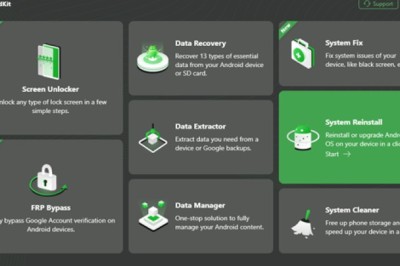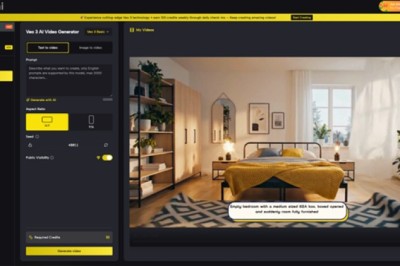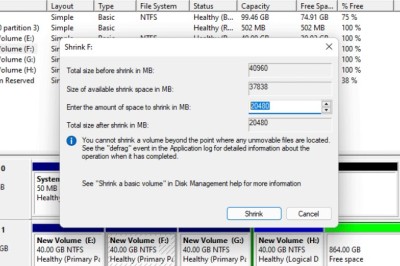views
Introduction
Learning a new language is one of the most rewarding things you can do. When people learn a new language, they become more culturally aware, gain an appreciation for other cultures, and can travel more easily. If you're considering learning a new language but aren't sure how to get started, check out these seven tips below:
Ask a Native Speaker to Teach You.
One of the best ways to learn a new language is by having a native speaker teach you. You can pick an individualized, one-to-one class like Sprachinstitut Treffpunkt-Online for speedy success and maximum flexibility especially for those learning the German language.
Use It or Lose It.
If you want to learn a language, the first step is to use it. It might sound obvious, but it can be challenging.
If you're not already living in an area where your target language is spoken and surrounded by native speakers, finding conversation opportunities can be challenging. But even if this isn't an option for you yet, there are still ways of getting out there:
- Make friends with people who speak the language you want to learn (or at least some kind of pidgin version) and spend time together regularly;
- Volunteer at an organization that uses your target language regularly; or
- Join a course or club where most people speak only one language--your target one!
Understand How You Learn.
Before learning a language, it's crucial to understand how you know best. The most effective method for one person may not be the best for another.
Almost everyone has an inherent learning style, which can vary from person to person. Different approaches work better at other times or depending on the subject matter when taught.
If you need to know what kind of learner you are, try experimenting with different methods until something clicks! If nothing seems to work, ask your teacher about their recommendations or ask someone who knows what works for them well enough so that they can offer advice on how others might benefit from such techniques too (e.g., parents).
Listen to the Language All-Day.
- Listen to the language all day.
- You can listen to music, radio, and TV in your target language.
- You can also listen to podcasts with native speakers discussing exciting topics like politics or sports.
- Audiobooks are another option for listening and reading practice if you're learning to read a new alphabet (or script).
Learn the Most Frequently Used Words First.
For beginners, it's a good idea to learn the most frequently used words first. It will help you improve your pronunciation, listening, writing, and speaking skills.
- Learn the most frequently used words first
- Focus on learning grammar later
Stay Motivated
- Keep a journal, and write down your reasons for wanting to learn the language. If you don't know what those reasons are yet, try thinking about what would happen if you were fluent in that language--what would be different? What things could you do or see? What kind of job could you get? How much more enjoyable would life be when everyone around you speaks another language as well as yours?
- Research the history and culture of your target language(s). It can help give context for why certain words are used differently than in English or why specific phrases mean what they do. It also helps keep things interesting while learning!
- Find an online community, meetup group, or online class dedicated to assisting people in learning this particular language; this way, there's always someone else who understands exactly where you are on your journey with learning new vocabulary words.
Get the Right Resources.
As you begin learning a new language, you must have the right resources and tools. Here are some of the best ways to get started:
- A textbook and a workbook are excellent ways to learn any language. They provide clear grammar and vocabulary instructions and practice exercises for each lesson so that students can review what they've learned immediately after class.
- Language learning apps offer similar benefits as textbooks by providing instruction through interactive lessons with audio clips recorded by native speakers from around the world--but with added features like flashcards or games built in! These apps also offer access from any device with internet connectivity (including smartphones), which makes them great for on-the-go studying sessions when there are few other options available at home or school work demands more attention than usual!
Knowing What Motivates You Will Help You Stay Focused and Finish Your Course.
Knowing what motivates you will help you stay focused and finish your course. If you are motivated, you will learn faster and be more likely to continue learning after the class. You'll also be more likely to stick with it.
To find out what motivates you, ask yourself: "What would make me get up early every morning?"
Conclusion
Learning a language is not easy, but it can be fun if you know what motivates you and how to stay motivated. You can learn any language with the right resources, motivation, and a little bit of luck!
























Comments
0 comment